Culture June 23, 2020
Free resources to answer the question: What is anti-racism?
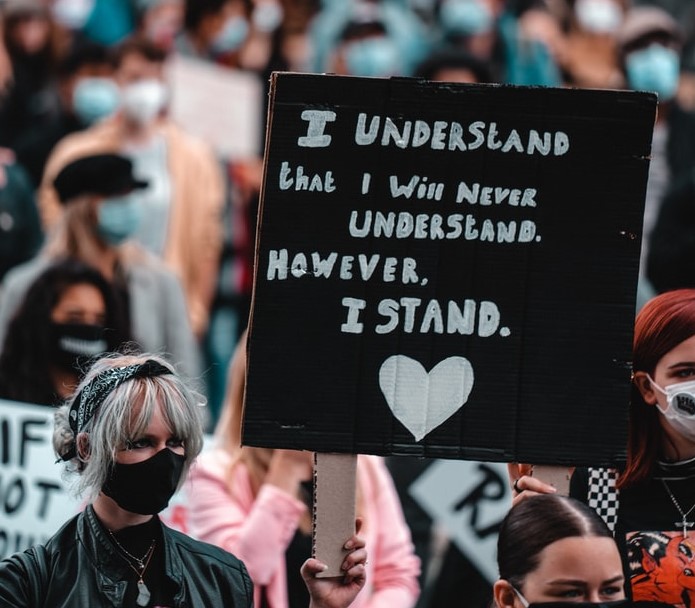

On May 25th, George Floyd was killed in the latest instance of unnecessary police brutality. Since it was another Black man killed by a White police officer, it has re-started a nationwide conversation about police treatment of Black people in the United States. This time, there has been an increase in people buying or borrowing books on how to be an “anti-racist” ally to the Black community as someone who is not Black. Many are starting with the question, “What is anti-racism?”
One organization that has been formed to help with this is Decent Human Society. It was founded by poet and doctoral student Gina Loring and activist and entrepreneur Adriane Velvet.
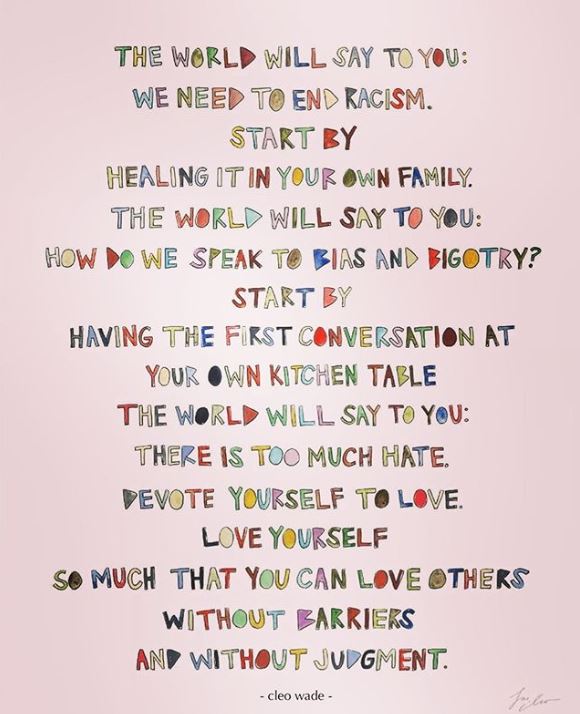
Part of the conversation that has popped up in the past few weeks in the wake of George Floyd’s murder is trying to answer the question, what is anti-racism? In an article published recently in The Guardian, they say:
“Anti-racism is the fight to build a mass-participating anti-racist movement in the workplace, the street and the community. Beyond a protest, a donation, a social media post and a difficult conversation, there’s work to be done in tackling the many day-to-day issues underscored by racism.”
According to a study by the Pew Research Center in 2019, “More than four-in-ten say the country hasn’t made enough progress toward racial equality.” While this is an interesting statistic, it doesn’t tell us what the four-in-ten are doing to help in the fight for racial equality.
UC Berkley Law Professor Savala Trepczynski explained to TIME that non-Black allies, particularly White allies, need to be vocal about their support for racial equality. She explains that in the past, protests that were predominately Black made racism seem like a “Black” problem when in actuality, racism is a problem for everyone in our society.
“Until a critical mass of white people begin and continue the work of anti-racism with their own lives, then uprisings and protests will function more as expressions of black and brown pain than as inflection points in the culture,” Trepczynski said.
One article in Vogue interviewed owners of Black bookstores about why the dramatic uptake of anti-racism research is happening right now. Hannah Oliver Depp, who owns Loyalty Bookstores in Washington D.C. theorized, “There’s a confluence of events going on. The pandemic kept people at home, and they saw that utterly horrific graphic video [of George Floyd’s murder]…this time white people couldn’t look away.”
Probably every American is familiar with the “Black Lives Matter” movement. It was born in 2013 following the acquittal of George Zimmerman, who shot and killed an unarmed, black teenager named Trayvon Martin.
This case brought the mainstream media’s attention to the shocking number of unarmed Black people being murdered on a regular basis. When one of these murders makes headlines, it skyrockets the hashtag #BlackLivesMatter right to the trending tab on Twitter.
Since then, Black Lives Matter has gone from a local, grassroots effort to a global network that seeks to end the disproportionate violence against the Black community worldwide.
Non-Black allies are now actively trying to figure out what anti-racism means to them, and they are looking for materials to help navigate any confusion. This is where Decent Human Society comes in.
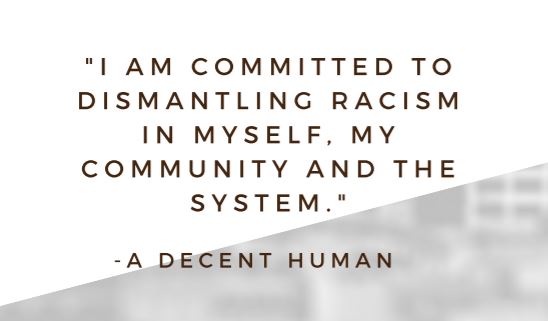

The Decent Human Society’s website states that the resources are “designed to quickly give you the basics on systemic racism against Black people in America.”
Co-Founder Gina Loring said, “We want to help the human family heal from the deep wounds of racism. We believe this simple guide is a great primer for a wide range of people.”
The site includes a mailing list where visitors can get more information about future courses and events. This means that building this site and putting together their starter guide is only the beginning.
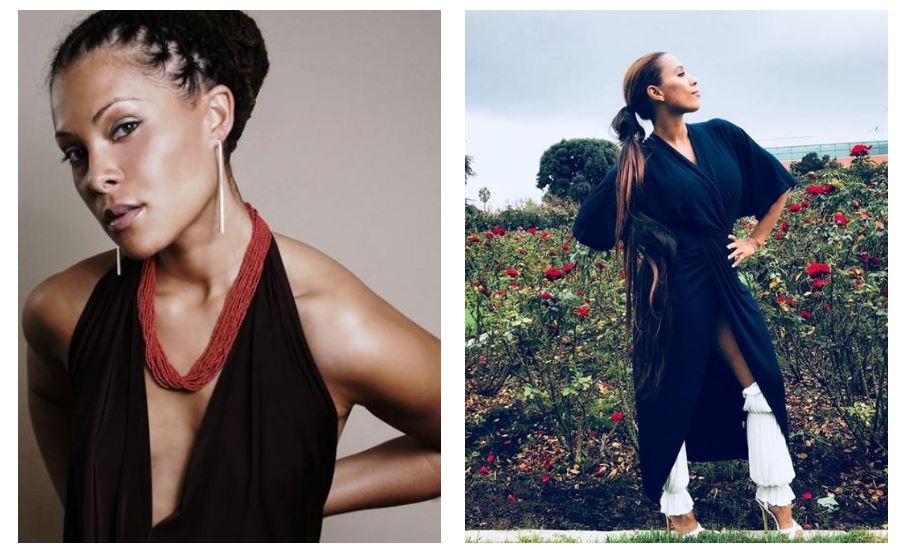

Gina Loring is a poet, singer, professor, and workshop leader. She is the founder of #SoulSpeak, an online Masterclass about, “Self-empowerment and healing through transformative poetry.” Additionally, she has been an ENTITY Academy mentor for our 2019 Writer’s Collective and remains in our network as a source of inspiration for past and present students.
Velvet said about Loring, “I trusted Gina to create the curriculum, as she’s much more connected to contemporary thought on the subject. My emphasis was on wanting the resources to be digestible and emotionally powerful so people would feel informed and empowered on the basics.”
Adriane Velvet is an artist and activist. She originally was going to study law but ended up writing comedy for the WB before eventually making a name for herself in the visual arts. Now, she is creating a “boutique marketing agency” that will create content and courses to be both educational and liberating.
Together, they’ve created The Decent Human Society, which provides a mixture of reading materials as well as videos. They tackle topics such as:
“What we created is a primer for people who want to be allies, but may be new to the topic of racism, or feel intimidated or overwhelmed by all the emotion around it,” said Velvet.
“The resources in our #DecentHuman starter guide cover a wide range of material, but each source touches on a component that plays a part in the larger picture,” said Loring.
One of the first things they recommend starting with is a video from anti-racist scholar Dr. Robin DiAngelo. They also share her essay from the book, “White Fragility: Why It’s So Hard for White People to Talk About Racism.”
According to this graph found on DCist.com, “White Fragility” has become one of the most sought-after ebooks at libraries in Washington, D.C. within the past few weeks.
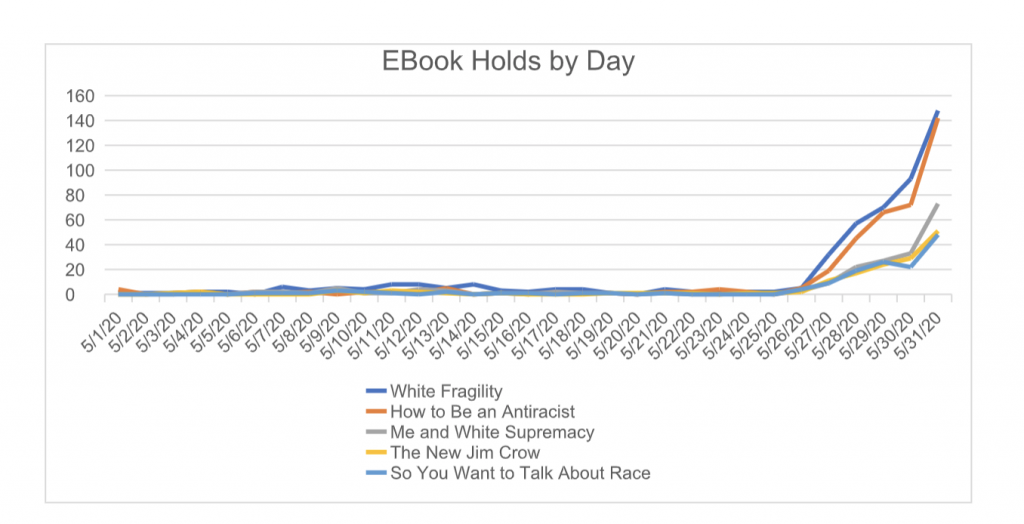

The title of this book is not wrong. It is hard for White people to talk about racism. As Velvet said, there is so much emotion surrounding racism, and it isn’t that White people cannot empathize with the issue. However, White people have been the primary beneficiary in regard to the subjugation of Black people since the time of slavery.
Because of this, White people are afraid of saying the wrong thing, since they have always in one way or another, benefitted from Black oppression. Because of this fear of saying the wrong thing and being on the receiving end of anger, this has caused many White people to be scared silent.
Decent Human Society knows this, and wants to help.
“Not everyone is going to become an expert on race relations, but if their heart is in the right place, everyone can become an ally. We created this simple guide to arm people with the basics in a few hours, tops,” said Velvet.
They recommend looking into the prison system through the Netflix Documentary “13th” directed by Ava DuVernay. They also recommend this Medium article about how our current police and prison system originated during slavery.


Additionally, Decent Human Society has a link to the work of Jane Elliott. You may be familiar with her if you’ve ever heard of the “Blue Eyes and Brown Eyes” exercise.
Elliott’s site includes a quiz with, “Typical Statements” that White people may have said or thought in the past when confronted with racism. They then link to a page that explains why these statements are problematic.
Some of these statements feel like they are obviously harsh and cruel. However, some of them seem very mild, and are what scholars call, “microaggressions.” Once you read the explanations as to why they are not helpful statements, it is really eye-opening.
For example, I think a lot of people that I have been seeing on my own social media channels would resonate with No. 11: “I’m with them up to the point where they want to break the law or do something illegal.”
Right away from that language, it’s clear that these people will only act until there are negative consequences for their actions. Or, that the fight for racial equality is a problem specifically for, “them” i.e. Black people.
The explanation that Jane Elliott’s site gives in response to this line of thinking is that “revolution is permitted for only the right (White) reasons.”
The American Revolution was built on White anger and White violence, like The Boston Tea Party and the Boston Massacre. We celebrate these acts of rebellion as the starting point of our independence from an unjust monarchy.
However, modern White people are happy to leave these “honorable” events in the past. This implies that they don’t think Black issues are important enough to warrant Revolutionary-War style protesting. It completely minimizes the problems Black Americans face today.
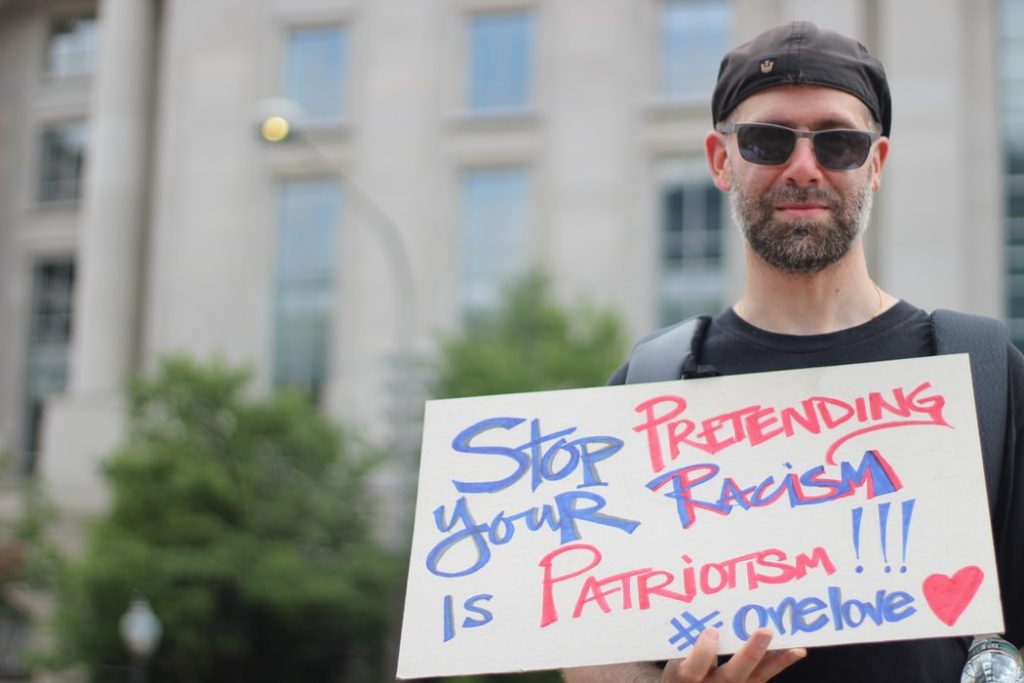

When asked about the why and how, of The Decent Human Society’s mission, Gina Loring explained:
“This is a pivotal moment in history. The world is finally acknowledging the inhumane oppression that has been the reality for Black people since we arrived here in bondage. It took tragedy after tragedy for that to happen, but the beautiful part is the outpouring of people who truly care and want to help us heal as a human race. Coupled with a desire to help, it is imperative to understand the historical context and the many ways systemic racism operates throughout virtually every aspect of society…Our goal is to help create a more decent society, and that will take education, humility, and compassion, even if it’s one person at a time.”
Adriane Velvet echoes these sentiments, particularly about how dismantling racism will take teamwork:
“I want to include as many people as possible in humanity’s victory over racism. I just want to open the doors really wide and say to the whole world, ‘Hey, if you’re even slightly interested in equality, you’re hella welcome here!’ We’ll share the basics in this guide and figure out the rest together.”
To learn more about Decent Human Society, the resources they recommend, and keep up with their future campaigns, be sure to check out their website and sign up for their email newsletter.
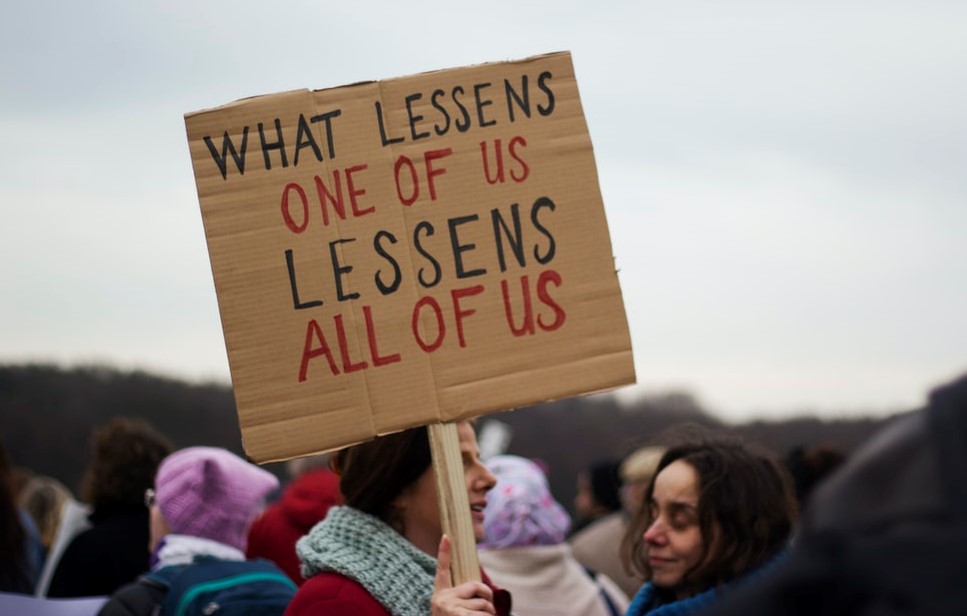

Decent Human Society Relevant Links
Other Resources That The Decent Human Society Recommends: